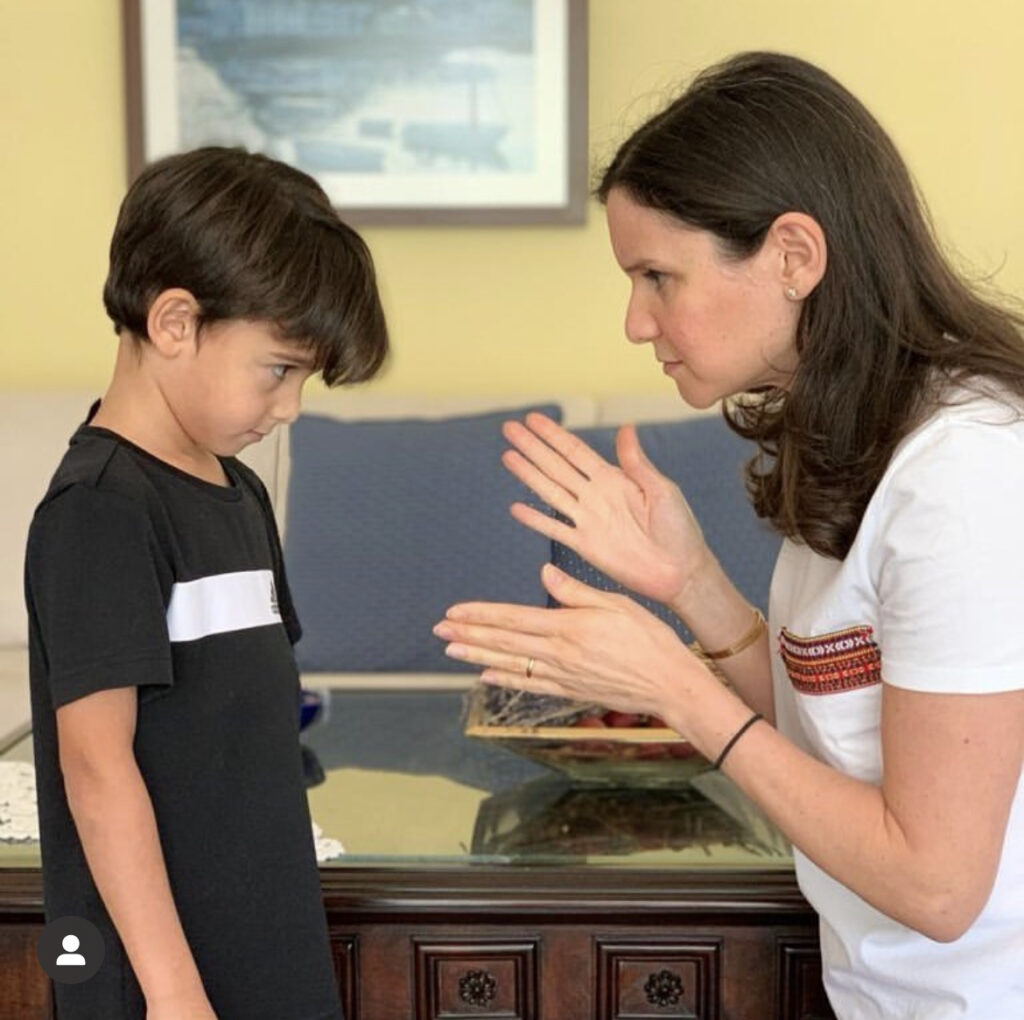As parents, we often fall into the trap of using negative statements with our children without being aware that these comments can have a harmful effect on their emotional well-being and emotional development.
Many are the times when we use sentences like, “Oh stop nagging!” or “How lazy you are!” and instantly regret each and every word the minute these upsetting comments come out of our mouths. But please let me tell you something: We are not perfect humans and will never be.
We are all individuals who learn, through trial and error, about different methods and strategies that could support us on our parenting journey. Our main aim is to guide our children into becoming self-sufficient, content, and responsible individuals in the future. It is very normal for us to act in ways that might not land well with our children, and in my opinion, I don’t think it is that terrible.
However, what I consider catastrophic is when we don’t do anything to change our defaults, enhance ourselves and break those generational unconscious methods instead of transmitting them over to our children.
Every day is a new chance for us to understand ourselves better and learn about what needs to be done about our unconscious autopilot parenting habits.
One of the best things we can work on is to consider how we communicate our needs to our children and the way we talk to them.
Firstly, a phrase like “You don’t know how to do this!” robs children’s self-esteem by cutting off on their abilities. Such statements will transform them into hopeless dependent beings in the future. Children need to hear words of encouragement and recognition. These encourage them to reach their goals and turn into ambitious people. The key element here is to exercise patience while observing the child until a given task is completed. This inspires them to seek more accomplishments and make them feel trusted.
Similarly, statements like “Stop crying,” and “This is ridiculous to be upset about,” or “Shut up”, are aggravating and send the message that their emotions and thoughts are not valid nor important. It also dismisses their feelings, leaving them feel unsupported. On top of that we do not respect them for who they are. If we do not teach them to talk about their mishaps and fears, we teach them to develop a dark well of insecurities and self-doubt.
Children feel safe when they know that it is okay to express all their emotions and share their worries. We don’t want to shut down their emotional expression because it can pent-up feelings of frustration and sadness. That is why, it is fundamental to acknowledge all sentiments.
Similarly, comparing a child to their sibling or any other individual with comments like, “Why can’t you be like your sister?” Or “When I was your age,” can cause feelings of inadequacy and low self-esteem. Comparison is, in fact, the thief of joy! Comparing your child with yourself when you were his age sets very high expectations and a lot of pressure. On top of that, comparing siblings among each other creates rivalry and resentment.
Children are unique individuals, each with their own strengths and weaknesses. When we compare them to others, we are indirectly sending them a message that they are not good enough and they need to change to fit in. This leads to have them seek constant approval and validation from others, which could mess up with their authentic identity!
Get into the habit of seeing the strength in each child and highlight their own credentials. Once children know that they are capable, they can then enhance other areas in their lives. This is how they learn to the aim at becoming a better individual for themselves, their families, and consequently the society.
Labeling children like saying, “You are a bad boy,” or telling them what other people would make fun of them if they do not behave, can be damaging to their overall well-being. After all, children are highly influenced by the words and actions of their parents and may internalize these negative labels about themselves. All of these statements leave a long-lasting effect on their self-worth and results in fear of judgement and social criticism.
Teach your children to make their own choices as long as these choices are not harmful to anyone or go against your family values. They should not change their minds simply because they are afraid what others might say.
Finally, try a much as you can to avoid using words like, “Hurry up,” or “Come on why can’t you just move!” especially when they are still tiny and love to wonder at the beauty of life. I know that we all live in a stressful environment, and we are always in a rush; booked with multiple appointments and activities, but pushing them to hurry up all the time, generates stress which leads to creating worried and anxious beings in the future. It is indeed difficult to maintain a composed manner when they are acting at such a slow conduct, but we need to remind ourselves that at their young age their brains are still uncapable of understanding what time management is and why they need to hurry up so everyone gets on time!
In conclusion, negative statements can have a harmful effect on our children’s emotional wellbeing and development. It is important to be mindful of the language we use with our children and focus on validation and presence. By doing so, we can help our children grow to be emotionally healthy individuals who love who they are.


